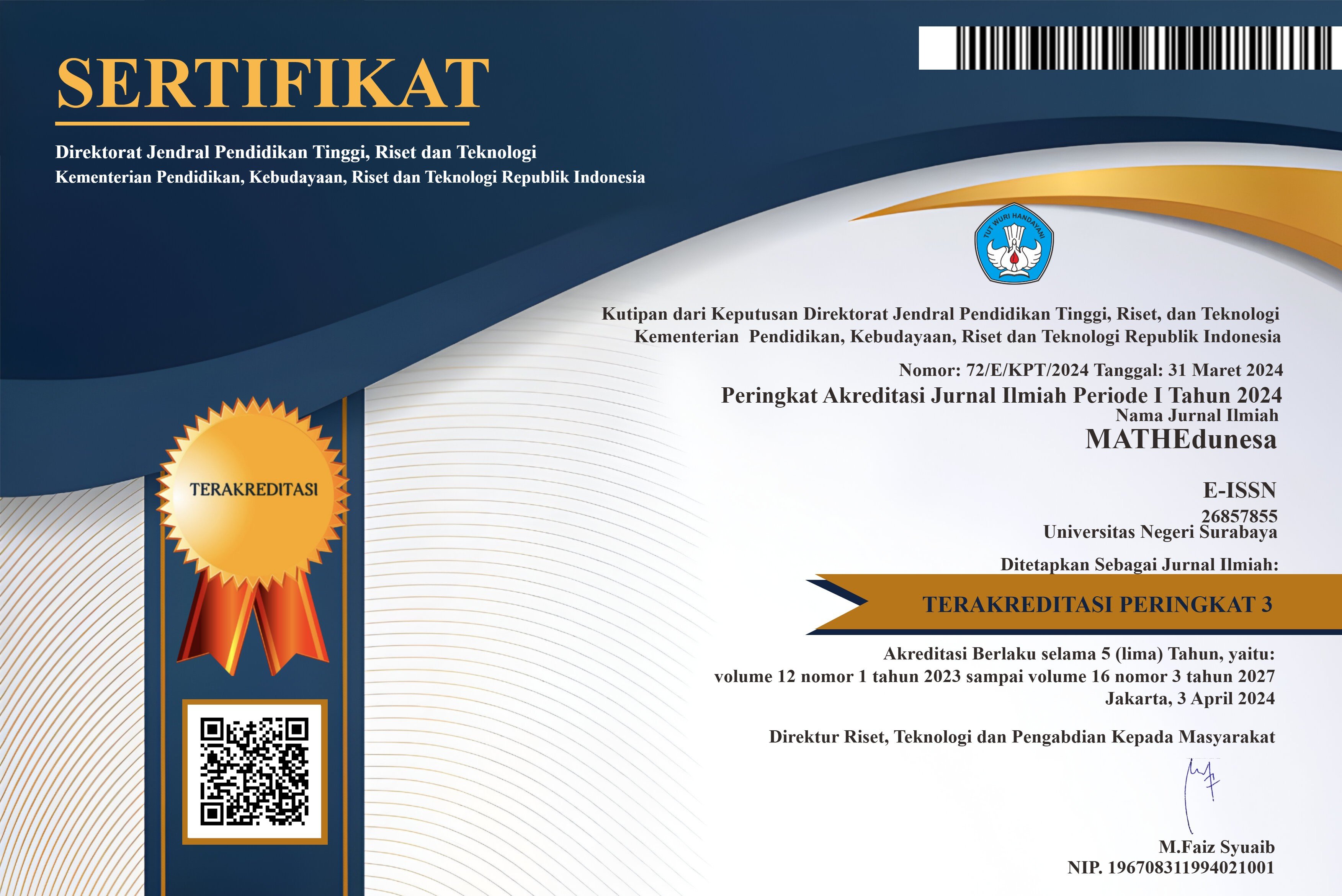Miskonsepsi Siswa SMP pada Konsep Segiempat Ditinjau dari Kemampuan Matematika serta Alternatif Untuk Mengatasinya
DOI:
https://doi.org/10.26740/mathedunesa.v11n1.p46-57Abstract
Mathematical ability is the ability required by students to solve a problem, students with high abilities will find it easy to solve problems because they have a good understanding of concepts, whereas students with low abilities will find it difficult to solve problems because they do not understand concepts correctly, which is what causes students to make conceptual errors. A condition when students experience a conceptual error is called a misconception. This research is a qualitative study that has the purpose to describe the misconceptions at each level, such as high mathematical ability, moderate mathematical ability, and low mathematical ability on quadrilateral material and alternatives to overcome them. The subjects in this study were 3 students who were selected using purposive sampling. In this study, students were given a mathematical ability test so that they could be grouped according to their level, then misconceptions were analyzed using a misconception test with the modified CRI method and continued with a diagnostic interview. The results showed that students with low mathematical abilities experienced more misconceptions than other abilities. The three subjects experienced misconceptions in determining the shapes which include rectangular shapes and the nature of rectangular. The causes of misconceptions are caused by pictures, students' abilities, and incomplete reasoning. The alternatives that can be done to overcome misconceptions are providing cognitive conflict, providing scaffolding, and re-explanation.
Keywords: misconception, quadrilateral, mathematical ability, alternative to overcome misconceptions.
Downloads
Downloads
Published
Issue
Section
 Abstract views: 416
,
Abstract views: 416
, PDF Downloads: 412
PDF Downloads: 412




